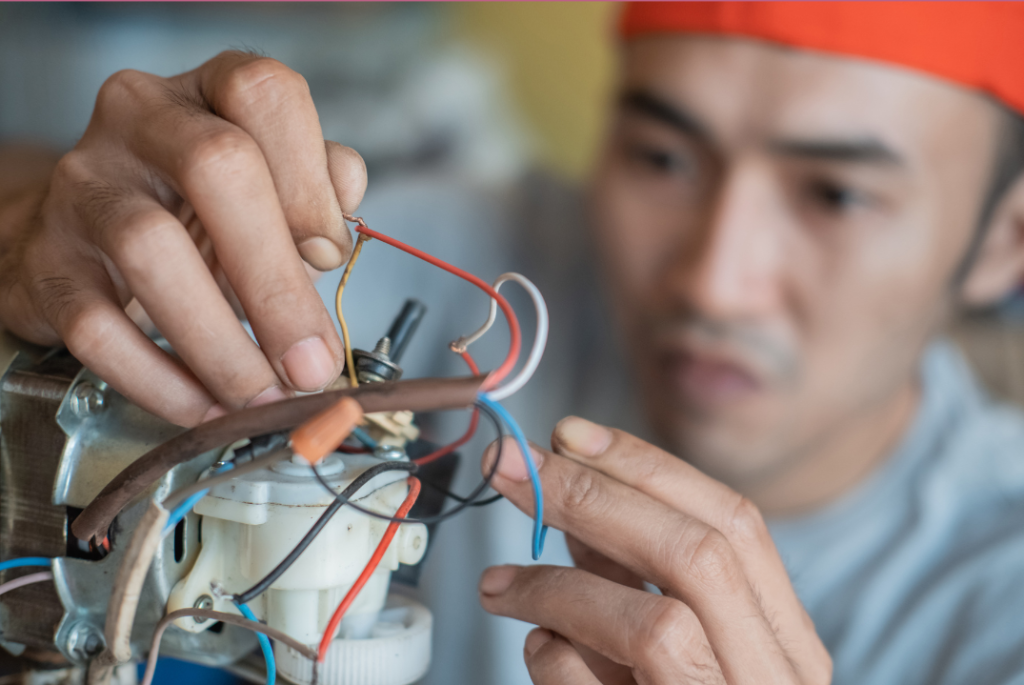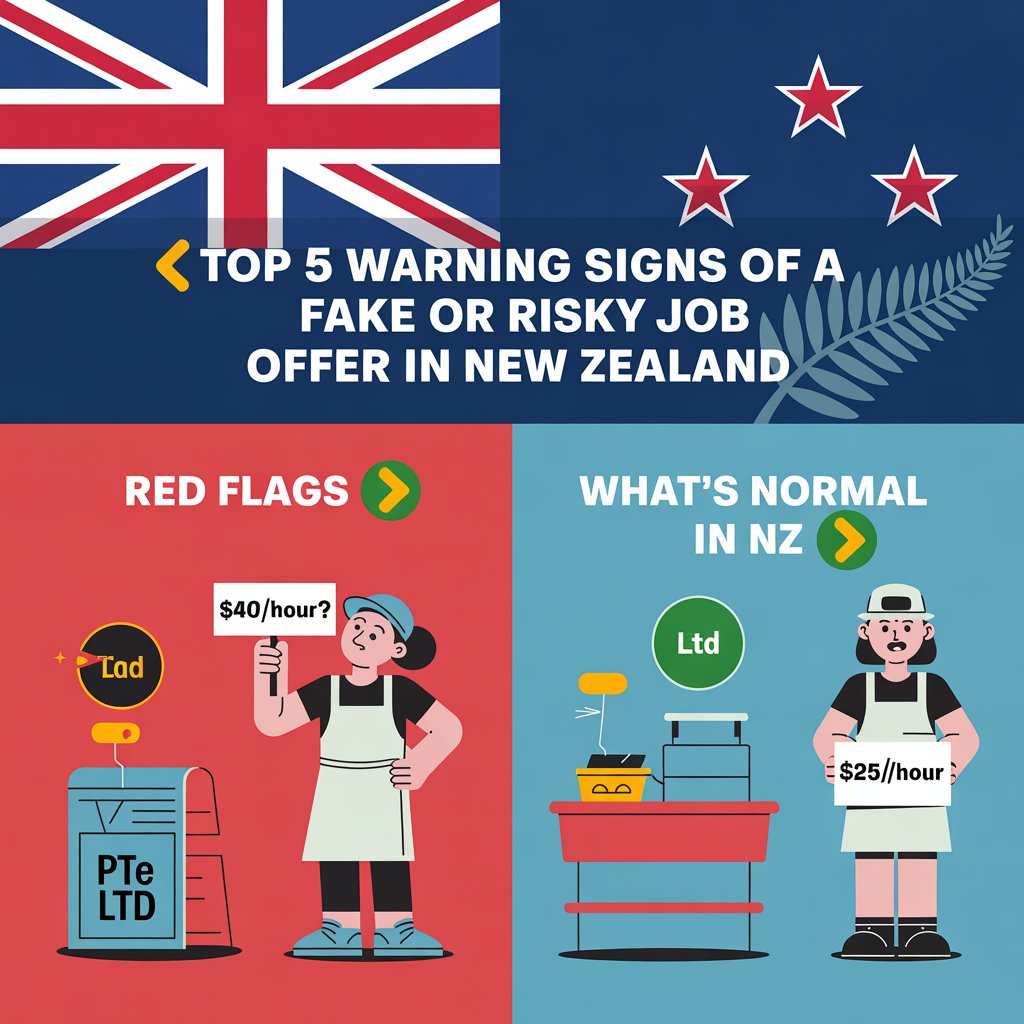There are a few possible work lines for electricians in New Zealand. Depending on that you may need Electrical Registration or not. (www.EWRB.govt.nz)
Residential Electrician:
- Electrical Installations: Installs wiring, outlets, switches, lighting fixtures, and electrical appliances in homes.
- Repairs and Maintenance: Identifies and troubleshoots electrical issues, repairs or replaces faulty components, and conducts regular maintenance to ensure safety and functionality.
- Safety Inspections: Performs inspections to ensure compliance with electrical codes and safety standards, addressing any potential hazards.
Additional Tasks:
- Installing and maintaining security systems, including alarms and surveillance cameras.
- Setting up home automation systems for smart homes, integrating lighting, heating, and entertainment systems.
- Working on electrical panel upgrades or replacements to accommodate increased power needs in homes
Commercial Electrician:
- Electrical Systems in Commercial Buildings: Installs, maintains, and repairs electrical systems in various commercial settings such as offices, retail stores, restaurants, and malls.
- Lighting Installation: Designs and installs lighting systems suited for commercial spaces, ensuring adequate illumination and energy efficiency.
- HVAC Electrical Work: May handle electrical components of heating, ventilation, and air conditioning (HVAC) systems within commercial buildings.
Additional Tasks:
- Implementing and maintaining fire alarm systems and emergency lighting to meet safety standards.
- Handling electrical wiring for specialized equipment or machinery used in commercial settings.
- Upgrading electrical infrastructure to accommodate evolving technology and energy-saving solutions, like energy-efficient lighting or renewable energy installations.
Industrial Electrician:
- Electrical Systems in Industrial Settings: Focuses on electrical systems in manufacturing plants, factories, and industrial facilities, which often involve heavy machinery and high-power systems.
- Machinery Maintenance: Performs maintenance, troubleshooting, and repairs on industrial machinery, ensuring proper functioning of electrical components.
- High-Voltage Systems: Works with high-voltage systems, transformers, motors, and complex electrical systems found in industrial settings.
Additional Tasks:
- Designing and installing electrical systems for new machinery or production lines.
- Collaborating with engineers and production teams to ensure efficient electrical operation of industrial equipment.
- Ensuring compliance with industry-specific regulations and safety standards applicable to heavy machinery and industrial electrical systems.
Each specialization demands a distinct skill set and understanding of the specific requirements in their respective settings. These professionals play crucial roles in ensuring the safety and functionality of electrical systems across residential, commercial, and industrial environments
- Auto Electrician: Deals with electrical systems in vehicles, including repairs and installations.
- Power Systems Electrician: Works with high-voltage power systems, often in substations or power stations.
- Maintenance Electrician: Performs regular maintenance and troubleshooting on electrical systems in various settings.
- Construction Electrician: Works on electrical installations during the construction of buildings or infrastructure.
- Instrumentation Electrician: Specializes in installing and maintaining control systems and equipment in industrial settings.
- Marine Electrician: Focuses on electrical systems on ships, boats, and marine equipment.
- Aircraft Electrician: Deals with electrical systems in aircraft, ensuring they function correctly and safely.
Each specialization requires unique skills and knowledge within the electrical field. If you’re interested in any specific area or have more questions about a particular type of electrician work, feel free to ask!
In New Zealand, certain electrical positions or activities may not require registration with the Electrical Workers Registration Board (EWRB) due to the nature of the work involved or specific exemptions. Here are a few examples of electrical positions that might not mandatorily require registration:
Low Voltage Service Technicians: Individuals engaged in low-voltage electrical work, such as repairs or installations of low-voltage systems in certain settings like commercial or residential properties, might not require EWRB registration. However, this may vary based on the specifics of the work and local regulations.
Alarm System Installers: Professionals installing security or fire alarm systems that operate at low voltage levels may not need EWRB registration. However, specific rules might apply, especially when interfacing with high-voltage systems or when working on certain components.
Audiovisual Technicians: Those working with audio, video, and communication systems often handle low-voltage wiring and equipment installation, which might not fall under EWRB registration requirements.
Telecommunications Technicians: Professionals involved in telecommunications, network cabling, and related infrastructure might not require EWRB registration due to the low-voltage nature of their work.
Certain Electronics Technicians: Individuals specializing in electronic repairs, maintenance, or installations that primarily involve low-voltage circuits or consumer electronics may not need EWRB registration.
It’s important to note that while these positions might not mandatorily require EWRB registration, specific tasks, situations, or work environments might still fall under regulated electrical work. It’s advisable to consult the EWRB to ensure compliance with New Zealand’s electrical regulations, especially when uncertain about registration requirements for a particular role or work scope.
See below screenshot from EWRB website:





